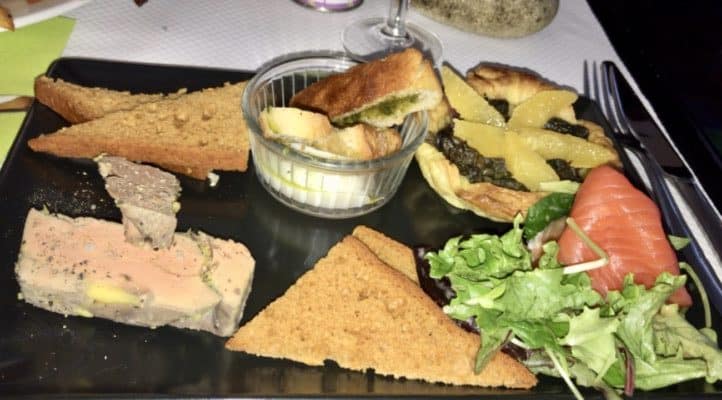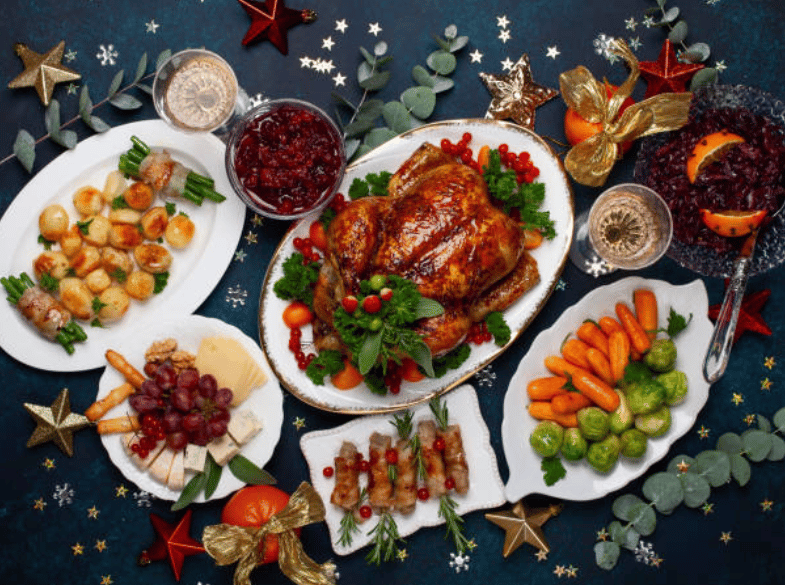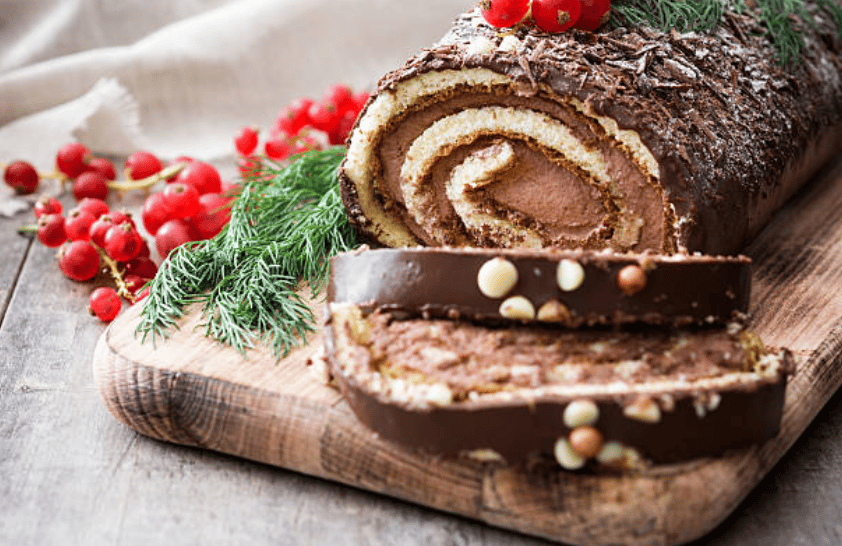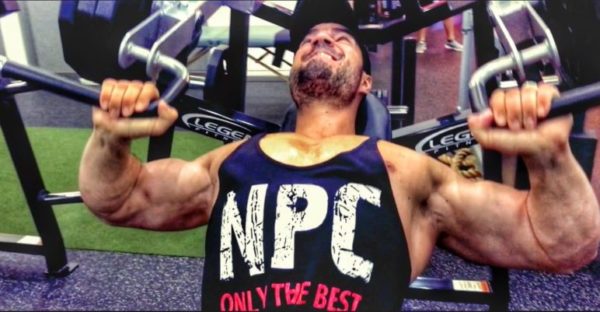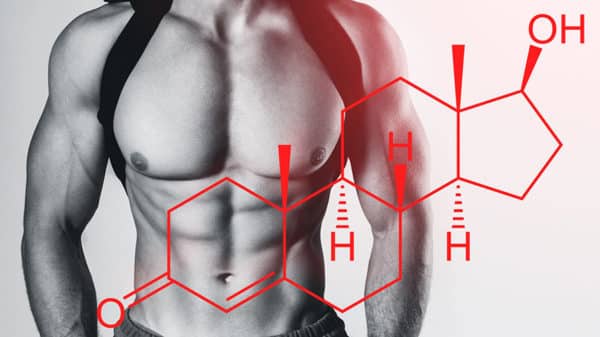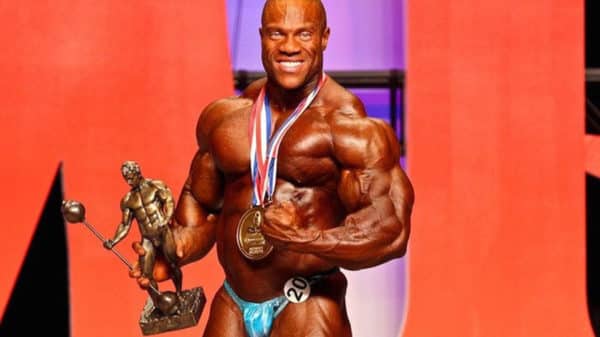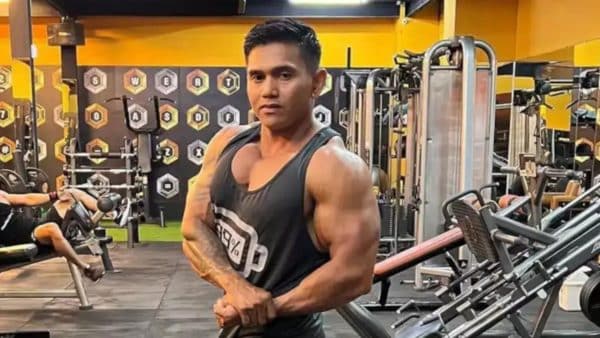Get out of the kitchen for a while during the holidays and enjoy the smart way to stay in shape without putting on extra pounds.
The holiday season is often synonymous with joy, sharing and hearty family meals. These are good times for temptation: sweets, high-calorie and high-fat foods will be lurking around you like mischievous little goblins.
For any serious bodybuilder who has been able to diet and keep its body fat percentage ideal throughout the year, it remains a dreaded period that could derail your eating habits and ruin your training and nutrition efforts.
How to combine christmas meal and diet?
How can you avoid gaining fat and keep a healthy diet? By retreating to a desert island with appetite suppressants for a few weeks and bringing your chicken breasts with you, to cut out any feelings of hunger and the desire to snack in the name of your ideal weight!
Seriously, for the rest of us who want to enjoy these holiday meals and wonderful moments with our loved ones without gaining fat, there are smarter and healthier ways to indulge while maintaining good eating habits. This way you minimize the damage to your body without going on a strict diet. Eating at a caloric deficit is impossible during the Christmas season unless you do hundreds of hours of cardio, which is not feasible and not necessarily effective.
In fact, I strongly advise against this practice because your hunger will increase tenfold on the day and your hunger hormones will encourage you to lose control. This will lead to a vicious circle of yo-yoing and weight gain. A food rebalancing as well as a durable weight loss will be done in a slower way.
Instead, stay in control and end the holidays guilt-free with my 7-point survival plan!
By following these tips, you can limit the damage.
1. Don't eat your usual 4 or 5 meals
Most people think that eating all their calories in a short period of time during the day will lead to fat storage, but this is a misconception.
My little secret to staying in shape all year round is a protocol I adopted from a approach diet called intermittent fasting. It is not a question of doing it all year round but simply on the days when you know you are going to have large meals. This allows you to control excesses through good management and organization. I use it when I travel, on vacation, during the holidays or in preparation for a big birthday meal.
Personally, it helps me keep my calories under control, but also helps me get right back on track after the festivities with no bad habits. Having tested Tupperware at Christmas which was a traumatic experience, I would never recommend it.
When you get up on the day, drink green tea or a large glass of water with lemon. And don't eat until the big meal. If the meal is in the evening, it will be difficult, but it's only for one day. So keep drinking throughout the day. What I usually recommend is to do it on the day and then the next day, you don't eat until you're really hungry around 2 or 3 o'clock.
So when it comes to appetizers, chips, and other weight-loss foods, think about eating slowly and enjoy it. If you have never fasted before, or this approach is too difficult for you, then the next strategy is for you.
2. Eat only protein before the big meal
This way, you will feel full and less likely to eat too many carbohydrate foods, fatty foods, or both at a dinner party. If you are following the 16 hour fast, then you will probably break your fast before the big evening meal. At least if you fail to follow the first tip.
Between the fast and the big evening meal, reduce your calorie intake and eat only proteins. No carbs or fat to help you burn calories or at least not store excess fat, as protein also plays a role in controlling hunger (feeling full). You should always continue to do your weekly workout, which will help you burn calories sustainably with some cardio thrown in if you like it. The best session is to work on your thighs on the day.
In addition, remember that protein is the best way to control your hunger and reduce fat storage when overeating.
A meal based on chicken breast and broccoli will do the trick and as a snack a quality whey protein. For my part I like to use: the Whey or the Native Whey from Prozis.
3. Structure your meal for maximum satiety
If you want to eat exclusively the meal and intend to abstain from alcohol and sweet desserts, eat protein first and eat lots of vegetables that are low in calories and fill the stomach (well if there are any).
This way you will already feel full before the arrival of desserts, sweet and high-calorie foods that will seem less appetizing.
4. Modify this structure slightly if you have a sweet tooth
What's a holiday dinner without the famous cakes, logs, pies and chocolate? If you've set your sights on dessert, keep your protein and vegetable intake high. On the other hand, keep your fat intake to a minimum.
If you are considering eating a caloric surplus while intending to limit fat gain, note that carbohydrates indirectly lead to fat storage, just like the rest of the other macros. What's unlikely is that if you make that splurge on that one meal or even dessert, you won't have too much of an impact on your diet. unless you subject yourself to prolonged periods of calorie overeating over several days.
5. If you can't do without alcohol, choose the lower calorie one
If you can't abstain from alcohol, it is advisable to choose the lower calorie ones. What you should do is to stay within your daily calorie limits as much as possible. Therefore, favour drinks such as beer, cider, dry white wine or champagne, limiting yourself to a maximum of two glasses. Avoid strong spirits and sweet wines or cocktails with fruit juice, which are sugar traps.
Contrary to popular belief, when you drink alcohol, it does not turn into fat in your body. Instead, it disrupts your body's fat burning for hours and can inhibit muscle protein synthesis. In addition, alcohol is loaded with empty calories that do not promote satiety.
Limit alcohol as much as possible as it may encourage uncontrolled overeating.
6. Train hard if you plan to eat a lot
You know you're going to eat like four so what do you do?
I recommend doing an intense strength training session, preferably on an empty stomach, on a large muscle group (such as the legs) before the big meal. You know that a session usually lasts between 45 minutes and 1 hour, so add a little 15 minutes to your session by adding 3 extra exercises. And at another time of day, try another activity. It could be a 30-minute bike ride, an hour-long walk, or a mini push-up session. It's up to you to choose what works best for you.
This will increase the bonus effects for future overeating. However, this effect isn't magic either, so don't start overeating just because you've had an intense workout!
Do you want to make good resolutions after the holidays, more motivated than ever and benefit from a customized program?
7. Enjoy!
In the end, all these things are worth it when you can spend time with your loved ones. Be able to reflect on your accomplishments for the year that has passed and resolutions for the year to come.
You can't stay cooped up in your kitchen for life without indulging once in a while. I want you to be able to go out, dine and attend parties. With the strategies I've mentioned, you'll be able to make progress and still have a minimum of fun!
This article is only relevant if you are invited of course.
Also read articles:
How to stay motivated in bodybuilding?


